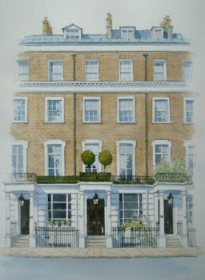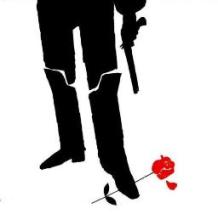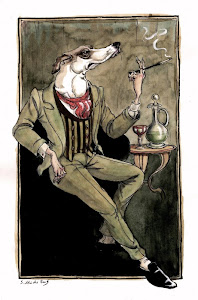 |
| Beaumont Lodge |
"...My parents started their married life in London, then moved to what was to be my beloved home in Essex, called Mark Hall – now entirely destroyed. It was in the English countryside, eight miles from the nearest church, and this was in the days of carriages nearly a hundred years ago in 1894. My father went to see Cardinal Vaughan, Archbishop of Westminster, and asked if we might have a private chapel in the house. Cardinal Vaughan said, ‘You can certainly bare a chapel but I can’t give you a priest. You’ll have to make your own arrangements if you can.’ My mother then went to Farm Street to ask if they could spare a priest, and every Saturday a Jesuit would arrive and stay until Sunday evening, having given us Mass in the morning.
In this way our background could not have been more favourable. We were five brothers, but I was the only one who, from the very beginning, felt called to the priesthood. We were brought up in an entirely Catholic atmosphere, and then we were all sent to school, again with the Jesuits, at Beaumont. The school in those happy days was run entirely by Jesuits, something that applies to very few Catholic schools now – there simply aren’t enough Jesuits to go round.
Beaumont made a great impression on me, but however much I admired our teachers, I never felt at all attracted to the Jesuit way of life. It is one of their characteristics, a great source of their spirituality, to emphasise a detachment, but possibly because I was so wonderfully happy at home I felt drawn towards something slightly more rooted. It’s always a matter of interest and admiration to me to find how wonderfully the Catholic Church uses all sorts of natural dispositions and temperaments. The Benedictines put immense emphasis on the stability of a place and vow permanent residence at a particular monastery. The Jesuits emphasise detachment, almost depersonalisation, and that aspect didn’t appeal to me.
On Democracy and Equality
To say that everyone is equal in God’s sight is absolute nonsense. Everyone is unique in God’s sight, as every father of a family will understand. To say that a father loves all his children equally would not be according to human nature. He mustn’t express the difference or show favouritism, but each child has a unique relationship to his father. The same applies to the whole of creation, not only to man. Not only does star differ from star, but God calls them by name; every pebble on the beach is unlike any other; every leaf on a tree is a unique creation; and manifest at the heart of creation is man, not merely plainly but absolutely unique, as we all are unique in our material circumstances.
We and the parents from whom we sprang were chosen out of all eternity by Almighty God. It is this that conditions the language, the culture, the timing, the colour. Equality doesn’t exist. Each of us comes to the world with a box of tools containing advantages and disadvantages in our character, and that’s the equipment, not anyone else’s, with which we have to hammer out our sanctification. Mine is unique, yours is unique. No one has the same box of tools."
- Monsignor Alfred Gilbey, interview with Naim Attallah, in Singular Encounters (1990)





















3 comments:
His Reverend Eminence's words should end the "equality" debate.
Admiral, obviously in the Monsignor's toolbox were clarity and equanimity, great gifts he used well.
This is quite good.
Post a Comment